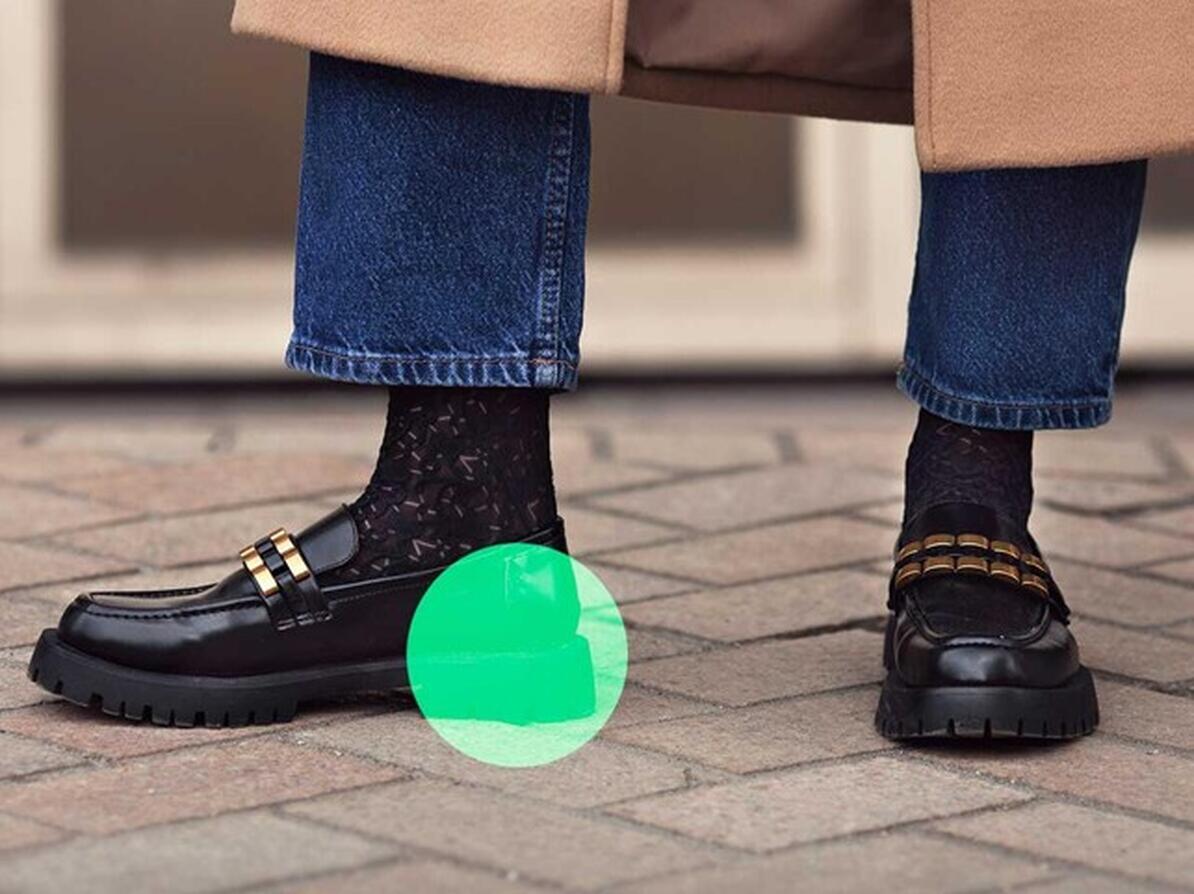Nine out of 11 shoes from online platforms contain illegal and hazardous substances
Harmful chemicals such as phthalates and heavy metals are found in most soles of tested shoes from popular online platforms. On the Danish market, things look better.

We have tested 16 pairs of shoes in different styles – loafers, cowboy boots, sneakers and sandals – from the popular online platforms AliExpress, Shein and Temu as well as from European brands such as H&M, Zara and Only. All the shoes are cheap with a price of up to 380 kroner.
But what is hidden in the shoes? Most of the tested shoes from foreign platforms contain harmful chemicals in the soles.
Main conclusion
- Nine out of 11 shoes from AliExpress, Temu and Shein contain harmful and illegal chemicals such as phthalates, chlorinated paraffins, heavy metals and PAHs in the soles.
- None of the five pairs of shoes from the Danish market have contents of illegal substances. One shoe contains legal PFAS.
Harmful chemicals in the soles of shoes
We have tested the shoes for chemicals that are problematic for health and environment. Some of them are banned in products such as shoes in the EU, while others remain legal. The substances include:
Phthalates, short- and medium-chain chlorinated paraffins, PAHs, heavy metals, formaldehyde, flame retardants, allergenic dyes and PFAS.
We have bought 11 pairs of shoes from online platforms outside the EU and five pairs from the Danish market. Nine of the 11 shoes from online platforms contain substances in levels that are illegal in the EU, and therefore they get the worst rating, the C-flask. The harmful substances found in the soles are phthalates, heavy metals, chlorinated paraffins and PAHs.
Among the five shoes from the Danish market, none have illegal content. One pair contains PFAS in the upper part of the shoe, measured as total organic fluorine (TOF) which is still legal. No specific PFAS were measured in the shoe.
PFAS substances are undesirable even though they are legal and the shoes therefore get a C-flask.
Phthalates far beyond the legal limit
In the test, we find harmful and illegal phthalates in several shoes from the online platforms – some in amounts that far exceed the permitted limit of 0.1 percent. A pair of loafers from Temu, for example, contains illegal phthalates in the soles in a concentration of up to 17 percent.
Phthalates are typically used as plasticizers in plastics, and they can be released from products such as shoes over time. They are endocrine disruptors and banned in a wide range of consumer products.
"In addition to the fact that you will be in direct contact with the shoes, they can also release unwanted substances into your surroundings and thus pollute the indoor climate and the environment. And these shoes are really packed with harmful chemicals," says Stine Müller, test manager at the Danish Consumer Council THINK Chemicals.
Many harmful substances in the soles
In addition to phthalates, the shoes from the platforms contain many other harmful and illegal substances.
In seven of the shoes, we found chlorinated paraffins, which are suspected to be endocrine disrupting and carcinogenic, and are environmentally harmful. In three of the shoes, the content is so high that it is illegal.
Higher amounts of carcinogenic PAHs and harmful heavy metals such as lead and cadmium are also found in several of the tested shoes.
The type of shoe does not make a difference
The test shows no correlation between the chemical content and the type of shoe in question.
There are both sandals with and without unwanted chemicals - the same goes for cowboy boots, loafers and sneakers.
The undesirable substances are mainly found in the soles.
Why 'Made in China' is not always the same
All shoes we have tested from AliExpress, Shein and Temu are bought directly from Chinese companies and are therefore probably produced in China. Several of the shoes from the Danish market also carry the information that they are 'Made in China'.
But what's the difference between these shoes where the production takes place in the same third country.
Danish and European companies such as H&M have a legal responsibility to ensure that their shoes comply with the chemical regulations in the EU and Denmark – regardless of where the shoes are produced.
The same doesn't apply to platforms like AliExpress, Shein, and Temu. They must remove illegal products if they are made aware of them, but they do not have the same responsibility to check for illegal chemicals before the shoes are sold to Danish consumers.
"Our tests show that there is a very high risk of getting illegal and harmful chemicals into the bargain when shopping on the platforms rather than within the EU. And the Danish authorities cannot properly target the Chinese companies or the online platforms, and therefore they can get away with not complying with the rules," says Stine Müller.
We have reported the nine shoes from AliExpress, Shein and Temu to the Danish Chemical Inspection and made the platforms aware of our findings. The shoes have now been removed from their platforms.